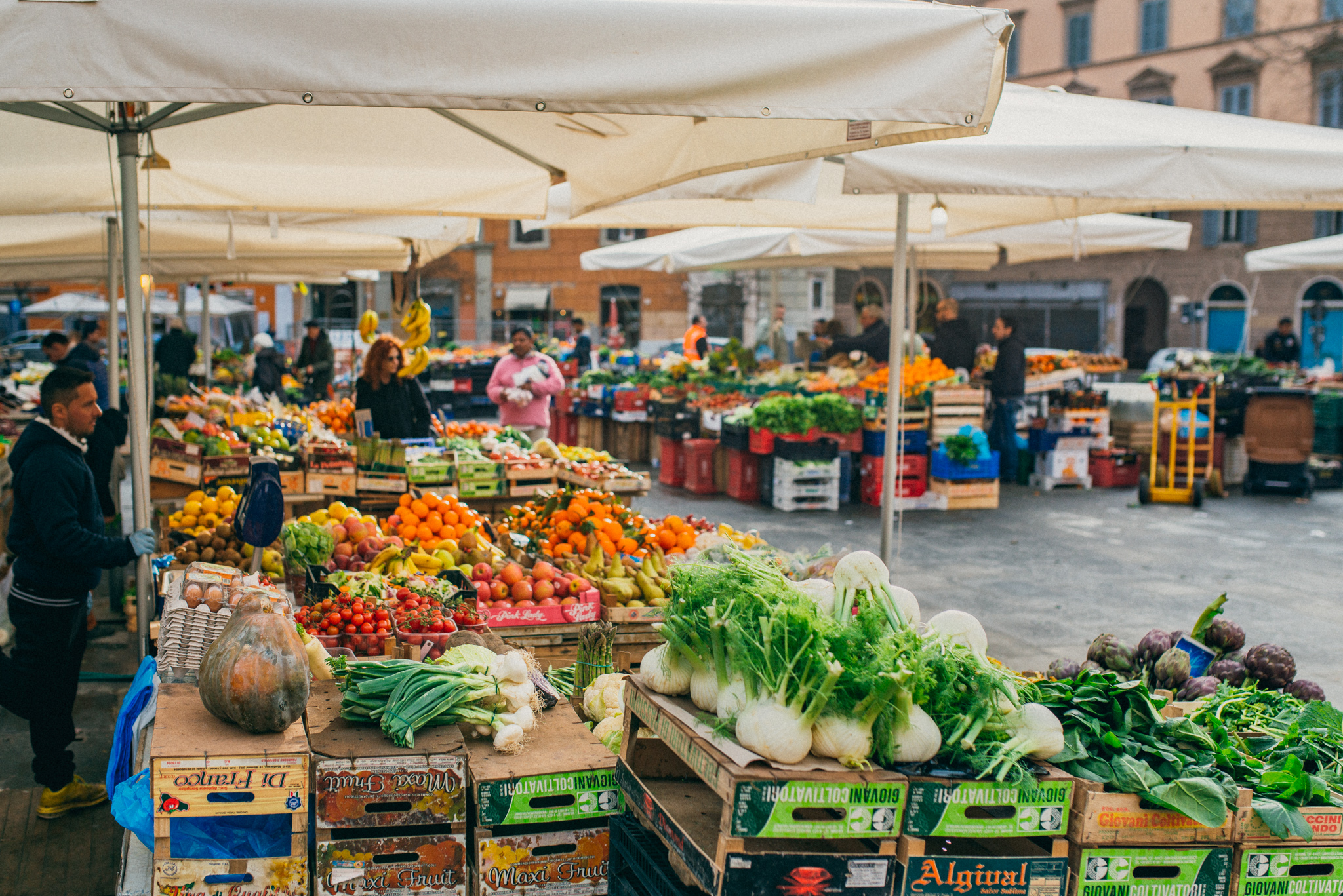

The increasingly popular Mediterranean diet puts an emphasis on fresh produce, local spices and herbs, and olive oil as a main source of healthy fat. This approach to eating has garnered an impressive following around the world because many of the foods grown locally in Mediterranean regions like Greece, Spain and Southern Italy have been proven to support good health - of both body and mind.
Whether they’re dining at a local restaurant, buying fresh food from the market, or eating at John Cabot University’s very own Tiber Café, students who study abroad in Rome have the benefit of enjoying Mediterranean cuisine every day of the week. More than just convenient and tasty, research shows that many of these foods actually boost brain performance - ideal for undergraduates who are looking for a little extra edge around exam time (or anytime, really).
Read on to find out which brain-boosting foods you can take advantage of while attending university in Italy.
Oily Fish for Constructing New Knowledge
 The human brain is composed of 60% fat, so it’s no surprise that our brains need a constant supply of healthy fats to function well. Fish such as anchovies, sardines, tuna and salmon are all excellent sources of omega-3 fatty acids like DHA (docosahexaenoic acid), which help support development in the brain. Luckily for students studying at John Cabot University in Rome, tuna and salmon are often on the menu at the Tiber Café.
The human brain is composed of 60% fat, so it’s no surprise that our brains need a constant supply of healthy fats to function well. Fish such as anchovies, sardines, tuna and salmon are all excellent sources of omega-3 fatty acids like DHA (docosahexaenoic acid), which help support development in the brain. Luckily for students studying at John Cabot University in Rome, tuna and salmon are often on the menu at the Tiber Café.
Coffee to Improve Focus
 Italy is world famous for its coffee, and now students have one more good reason to sip a caffe latte during their next study session. Coffee has been proven to temporarily improve focus and memory by increasing brain activity, and lifelong coffee consumption has been associated with a lower risk of Alzheimer’s disease.
Italy is world famous for its coffee, and now students have one more good reason to sip a caffe latte during their next study session. Coffee has been proven to temporarily improve focus and memory by increasing brain activity, and lifelong coffee consumption has been associated with a lower risk of Alzheimer’s disease.
Romans typically enjoy cappuccinos in the morning, while during mini-breaks throughout the day, locals might indulge in an espresso or a caffè macchiato (with a “spot” of milk). Those looking for a more North American-style coffee might order a caffè Americano —an espresso diluted with water and sometimes a splash of milk.
Berries for Better Retention
 Berries contain high concentrations of antioxidants, which many studies have shown help delay brain aging. Berries (especially blueberries) are also rich in flavonoids and anthocyanins, which help protect brain cells specifically linked to memory.
Berries contain high concentrations of antioxidants, which many studies have shown help delay brain aging. Berries (especially blueberries) are also rich in flavonoids and anthocyanins, which help protect brain cells specifically linked to memory.
While berries aren’t as prevalent in Italian cooking as they are in some other cuisines of the world, they can easily be found at any local market, and in several Italian desserts. Students who study abroad in Italy have the opportunity to try a delicious and famous dessert called Zabaione—a whipped custard topped with strawberries, blueberries and raspberries. Or, just grab a fresh handful the next time you’re hitting the books or sitting down to write a test!
Leafy Green Vegetables for Sharper Memory
 Leafy green vegetables such as spinach, kale and collard greens, are all extremely high in folic acid - a chemical proven to protect the brain against loss of memory. What’s also great about leafy greens is that they are some of the easiest vegetables to grow at home—and extremely cheap to buy at the market!
Leafy green vegetables such as spinach, kale and collard greens, are all extremely high in folic acid - a chemical proven to protect the brain against loss of memory. What’s also great about leafy greens is that they are some of the easiest vegetables to grow at home—and extremely cheap to buy at the market!
In Roman cuisine, spinach is commonly used as an ingredient in cannelloni, layered in lasagna, or otherwise mixed into pasta. A good way to make sure you get enough leafy greens in your diet is by tossing them into a daily salad, or by sautéing a generous handful with some olive oil and garlic for a delicious side dish.
What foods do you eat to boost brain power while you study?




